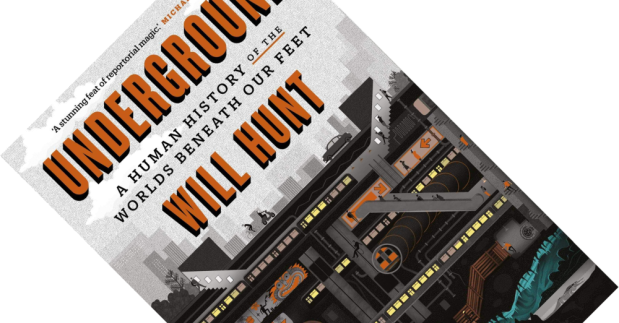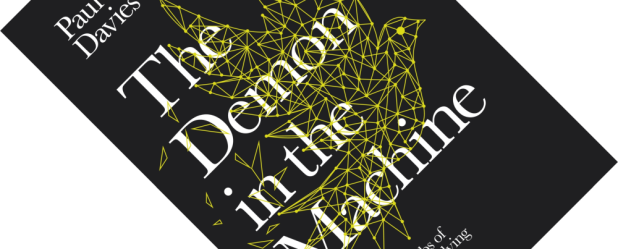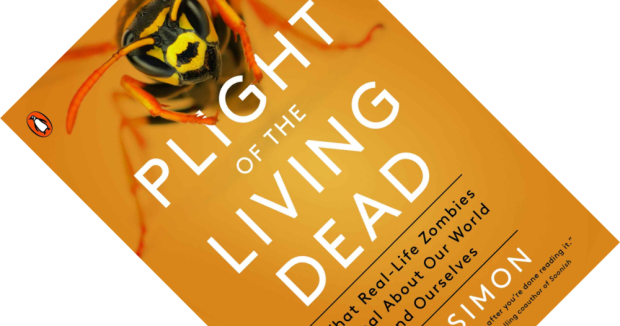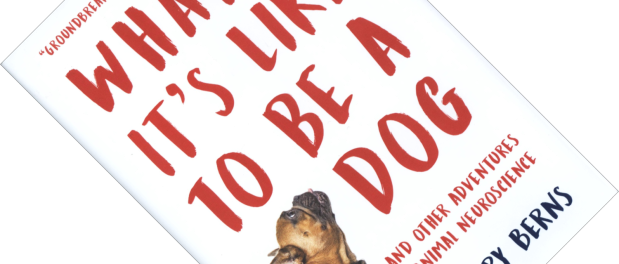Underground spaces exert a strong pull on the imagination of most people, although for some this morphs into a fascination bordering on the obsessive. American author Will Hunt is one such person, part of a worldwide community of urban explorers who infiltrate into “the city’s obscure layers”. Though this encompasses more than underground spaces, they are a big part of it, and this book is Hunt’s story of how he fell in love with them. It is one of two big books published only five months apart on the subterranean realm, and I previously reviewed Robert Macfarlane’s Underland: A Deep Time Journey. Here I will turn my attention to Underground.
neuroscience
Book review – The Demon in the Machine: How Hidden Webs of Information Are Finally Solving the Mystery of Life
So, quick question for you. What is life?
Sorry, that’s a trick question, for the answer to this is anything but quick. The mind-boggling complexity that is life, even something as “simple” as a bacterium, somehow arises from atoms and molecules. And yet, physics and chemistry as we currently know it seem incapable of answering how life’s complexity emerges from its constituent parts. With The Demon in the Machine, well-known physicist and cosmologist Paul Davies takes a stab at it, saying we are on the verge of a breakthrough.
Book review – Plight of the Living Dead: What Real-Life Zombies Reveal About Our World – and Ourselves
Being turned into a zombie is not something most of us worry about. Sure, some of us consider humans metaphorical zombies, controlled by mass media / the government / smartphone addiction / my pet hamster / ________ (fill in your own favourite 21st-century angst here). All I can say after reading Matt Simon’s book is that I am glad that I am not an insect. In turns gruesome and hilarious, Plight of the Living Dead is a carnival of the many grotesque ways that parasites can control their hosts. Something we do not have to worry about… or do we?
Book review – Blueprint: How DNA Makes Us Who We Are
When I opened this book and read its sales pitch (I paraphrase: “What if I told you of a new fortune-telling device that can predict psychological traits – it’s called the DNA revolution!”) I raised my inquisitive but sceptical eyebrow somewhat. Did I just pick up another piece of pop-psychology pulp? Oh boy, was I wrong! Behavioural geneticist Robert Plomin has written an incredibly interesting book with Blueprint, explaining how rapid advances in DNA sequencing technology are opening vast new vistas on the genetics underlying psychology. And is it ever so different, and more complex, than what hyped-up newspaper headlines have tried to sell us so far.
Book review – The Enlightened Gene: Biology, Buddhism, and the Convergence That Explains the World
I sometimes wonder whether I am a closet Buddhist. Now, I will be the first to admit that I know next to nothing about Buddhism, but what little I have encountered often strikes a chord with me. The Enlightened Gene shows there might be a good reason for this. This book chronicles a most unlikely project: the Emory-Tibet Science Initiative. On the invitation of the Dalai Lama no less (!), Emory University has developed a science curriculum to be taught to Tibetan monks and nuns in exile in India. Spearheaded by professor Arri Eisen and in close collaboration with monk Geshe Yungdrung Konchok, the aim is to integrate modern science (focusing on physics and life sciences, especially neuroscience) into their monastic curriculum.
Book review – What It’s Like to Be a Dog: And Other Adventures in Animal Neuroscience
Do you have a dog? I grew up surrounded by Newfoundlanders. Ever wondered what they are thinking? Whether they think at all? You’d be forgiven for thinking that What It’s Like to Be a Dog is another book for dog lovers and, in part, it is. But don’t let the title mislead you, this book is primarily a popular account of ongoing developments in animal neuroscience, specifically on what scanning mammal brains using magnetic resonance imaging (MRI) can tell us about our shared similarities.






